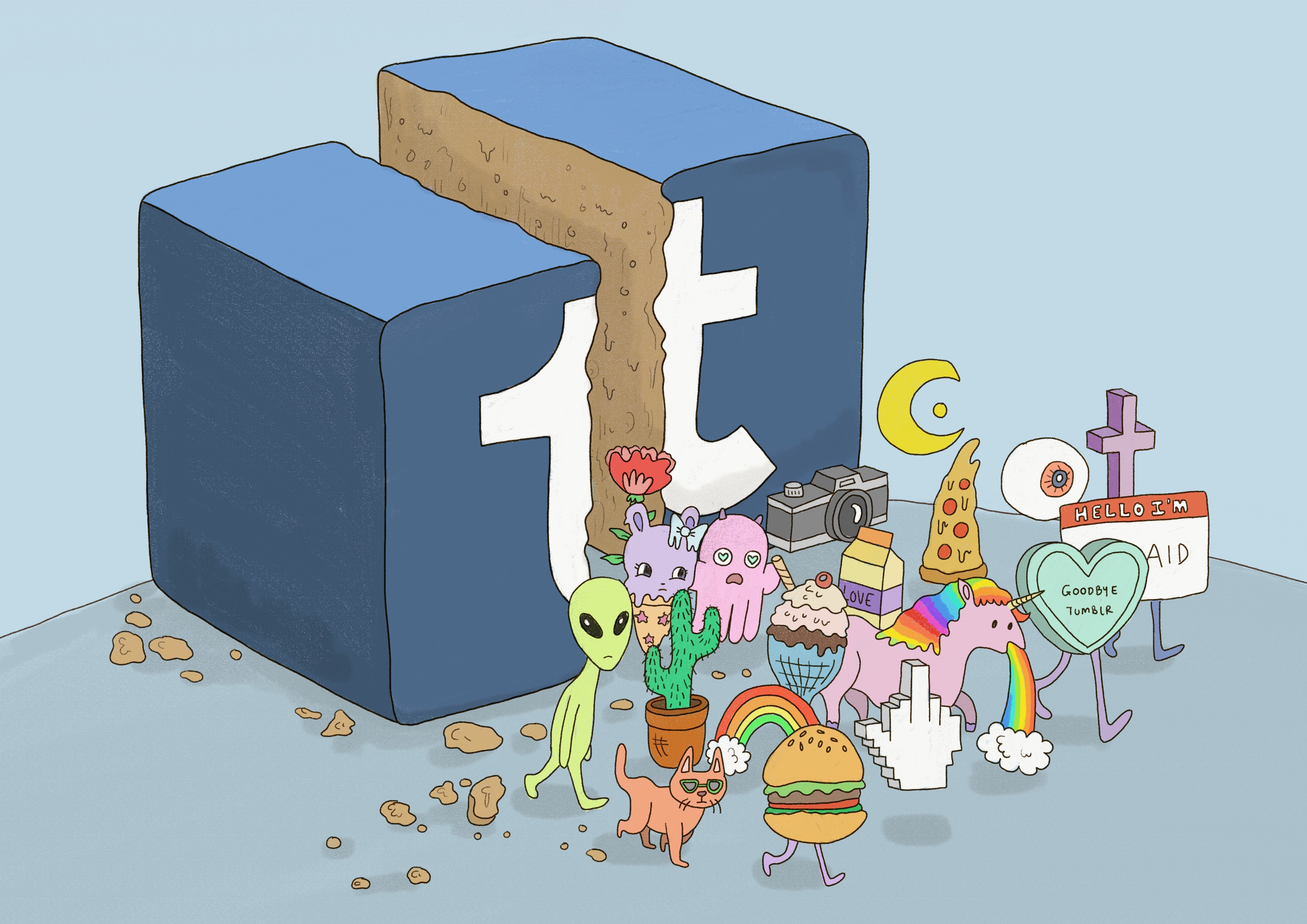Most people, especially those familiar with the various social media platforms, have heard of Tumblr at some point in their lifetime. Regardless if you’ve used the site or not, it has been relevant in popular culture over the last decade.
The site acts as a place where people can express themselves, post writing, art and reblog the work of others. Users can follow each other and follow specific “tags,” such as “writing,” “movies” or “art.” Tumblr makes it easy to follow tags for just about anything. Many people enjoy talking to like-minded people on the site and believe it acts as an online community.
Many of the memes that become widespread on platforms like Twitter, Facebook and Instagram started on the blogging website. Although it’s used for many things, at its foundation Tumblr is a website for people to blog and post photos. The website became popular in the early 2010s, starting as a simple blogging site and turning into so much more. Now, Tumblr is facing a loss of users and relevance, especially within the past few months.
Tumblr was invented in 2007 by David Karp and Marco Arment. Karp was only 17 when he was was inspired to start a blogging website, and he founded Tumblr when he was only 21. He wanted the website to be a microblogging platform that would encourage self-expression. It is designed for users ages 13 and up, and, although, it’s mostly used by teenagers and millennials, people from various ages groups have used the popular website.
Now, however, Tumblr is facing a huge dilemma: Users are leaving due to the site’s ban on porn. Last year, on Dec. 18, Tumblr erased all adult content from the website, and many blogs were deleted because of this. This decision was made because child pornography was found on the site. Instead of addressing this issue head on, Tumblr decided to ban all NSFW content. This had a devastating effect on the website. Between last December and February of this year, Tumblr lost 30 percent of its users. This ban affected many artists who draw NSFW content, as well as those who write erotica or fan-fiction.
Many Tumblr fans are moving to Twitter, where they feel that their content will be more appreciated and less scrutinized. Many people used the site as an outlet to talk about their sexuality, which was sometimes hidden from the outside world. Sex-positive blogs offered advice about fostering healthy relationships. Others enjoyed sexually explicit photography or paintings. With Tumblr’s ban, all of this was gone. Even something as innocuous as a nipple could face censorship under the new policy.
Many have criticized the site for simply banning all adult content, and not zeroing in on the harmful content only. Somehow, neo-Nazi content and white nationalist content survived the purge, and has even flourished since the ban on NSFW content. If Tumblr was able to crack down so hard on adult content, they should be able to eliminate racist, sexist and dangerous content as well, right?
If Tumblr were to disappear completely, great content would disappear along with it. However, some have cited the website as being more harmful than helpful for those with mental health issues. Some users use the site to glorify self-harm, which can be triggering for those suffering from suicidal ideation, depression or an eating disorder.
Some blogs market themselves as “pro-anorexia” or “pro-bulimia” and share tips for losing weight in extremely unhealthy ways. Especially since many of Tumblr’s users are so young, they could be easily persuaded into thinking that posting self-harm photos or glorifying eating disorders is a good way to receive attention online.
Personally, I spent a lot of time on Tumblr as a young teenager, and saw both good and bad sides of the website. The site exposed me to information about popular culture and politics in a different format than reading the news. I enjoyed finding new artists and music and reading writing tips and poetry. Being able to follow specific blogs made the experience more intimate than other social media sites, where people often only broadcast the highlights of their lives.
However, I also saw how the website could be toxic, especially to younger teenagers. Many young people who struggle in some aspect of their life, whether it be mental illness, bullying or questioning their sexuality turn to the site for advice and support. However, this can create a community that feeds off of each other’s issues instead of a place that may inspire people to get help in the outside world.
Regardless of whether Tumblr shuts down for good sometime soon or not, it has been a huge part of the online world for the past decade. For many people, Tumblr acts as a place where one can share content, make friends and inspire new ideas. As for how long it has left, only time will tell. If you are nervous about the future of the website and want to save your blog from being deleted forever, you can follow these steps to export your blog. For now, Tumblr is still here, so blog away.
















